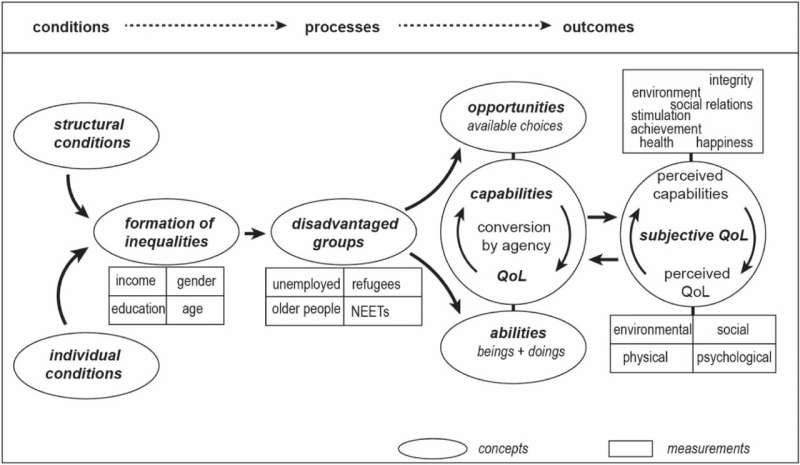Disadvantaged population groups perceive their capabilities to promote individual health and well-being as weak

Young people not in education, employment or training, long-term unemployed, people with refugee backgrounds, and older people living alone and at risk of exclusion perceive their capabilities to promote their individual health and well-being as weak. A new study shows that these people also perceived their quality of life to be weaker than the Finnish population on average.
The study, conducted by Research Director Tomi Mäki-Opas and Professor Marja Vaarama at the University of Eastern Finland and by Professor Richard Pieper at Tampere University, employed the capability framework, which hasn't been widely used to examine the background factors affecting the health and well-being of disadvantaged population groups so far.
The findings suggest that individuals' own assessment of their capabilities to act and pursue things they find important has a strong impact on perceived well-being. These capabilities are shaped not only by individual factors such as age and gender, but also and in particular by structural factors such as income and education.
"It is important for everyone to have certain fundamental opportunities to maintain and promote their well-being. Believing and having confidence in one's own choices, i.e., one's own capabilities, in shaping individual well-being is also important," Mäki-Opas points out.
In addition, it is vital to note that a person's capabilities to mobilize their resources and make healthy choices in life is always promoted or limited by the circumstances they live in.
"It is thus essential for social welfare and health policies not only to promote people's individual capabilities, but also to remedy what needs to be fixed, such as low income or substandard living conditions. Education alone is an investment in strengthening people's capabilities," Vaarama points out.
According to Professor Richard Pieper, the capability approach and the related scoring used in the study is promising and can open up new avenues for promoting people's well-being.
"Capability scoring describes not only the empowerment of people to achieve things they value, but also their hopes for the future. By supporting these, people can be helped to achieve their desired future," Pieper emphasizes.
Published in Scientific Reports, the study revealed both common factors and group-specific differences in people's capabilities to maintain and promote their well-being. All the study participants felt that having capabilities to achieve things in life and to get intellectual stimulation were important to their well-being.
For young people not in education, employment or training, for people with refugee backgrounds and for older people, it was important to live in a pleasant environment at home, at work and in leisure time. Capabilities to forge meaningful social relations were important especially for young people, and capabilities to seek happiness in life were essential for everyone but older people. Among older people, having meaningful things to do, access to the necessary services, and a positive attitude towards one's own aging were highlighted in many ways.
The researchers utilized cross-sectional data from the Inclusive Promotion of Health and Well-being project, PROMEQ, containing diverse data on the physical, psychological, social and environmental quality of life and living conditions of the respondents, as well as on their perceived capabilities to promote their quality of life.
More information: Tomi Mäki-Opas et al, Exploring the capability approach to quality of life in disadvantaged population groups, Scientific Reports (2022). DOI: 10.1038/s41598-022-18877-3
Journal information: Scientific Reports
Provided by University of Eastern Finland





















